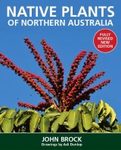By: Michael Wink(Author), Ben-Erik van Wyk(Author)
464 pages, 500 colour photos, b/w illustrations
![Mind-Altering & Poisonous Plants of the World Mind-Altering & Poisonous Plants of the World]()
Click to have a closer look
About this book
Customer reviews
Biography
Related titles
About this book
Since ancient times, poisonous plants and mushrooms have been used for hunting, murder and magic. Most cultures of the world have learnt to avoid these plants or to use them with discretion. Many of the plants are still widely used as traditional medicine for their therapeutic value in the treatment of diseases. Others are popular as recreational drugs or for ceremonial and spiritual purposes.
Hazardous plants are commonly used as garden ornamentals, pot plants or florist flowers, and many people are no longer aware of the inherent dangers posed by toxic plants or medicines derived from them. Also included in this illustrated guide are plants causing irritation and inflammation of the skin and mucous membranes. A special focus is on psychoactive plants which can have stimulant, sedative, hypnotic, narcotic or hallucinogenic properties, such as coca, opium, cannabis and scopolamine.
Mind-Altering and Poisonous Plants of the World gives the reader a bird's eye view of all the famous and well-known poisonous and mind-altering plants of the world. The book is presented as a compact, colourful and scientifically accurate reference text. It covers more than 1200 of the most important plants that people are likely to be exposed to. More than 200 of the most important poisonous and mind-altering plants are treated in depth in short monographs, covering their diagnostic characters, region of origin and distribution, active ingredients, toxicity, symptoms of intoxication and possible modes of action. Each monograph provides information on first aid treatment.
Mind-Altering and Poisonous Plants of the World is a must for gardeners, farmers, veterinarians, students, botanists, pharmacists, chemists, doctors and poison centres. The compact format and encyclopedic style will be useful to rapidly access information on poisonous plants.
Customer Reviews
Biography
Michael Wink is a professor of pharmaceutical biology and a director of the Institute of Pharmacy and Molecular Biotechnology at the University of Heidelberg in Germany. He is an authority on secondary metabolites of plants and their pharmacological effects.
Ben-Erik van Wyk is a professor of botany at the University of Johannesburg, South Africa. His scientific field of interest is in plant classification, ethnobotany, and useful plants.
By: Michael Wink(Author), Ben-Erik van Wyk(Author)
464 pages, 500 colour photos, b/w illustrations
"Recommended to anyone who is interested in poisonous plants and their components. The extensive illustrations and cogent explanations make this book a good reference work for natural scientists, and a particularly good textbook for pharmaceutical professionals and students who are interested in toxicology."
- Organic-Chemistry.org 2009-04-01
"An intriguing (and inexpensive) book to browse, both for the usual suspects (cannabis) and unsuspected ones (grape)."
– R. Schmid, Choice 2009-07-01








































